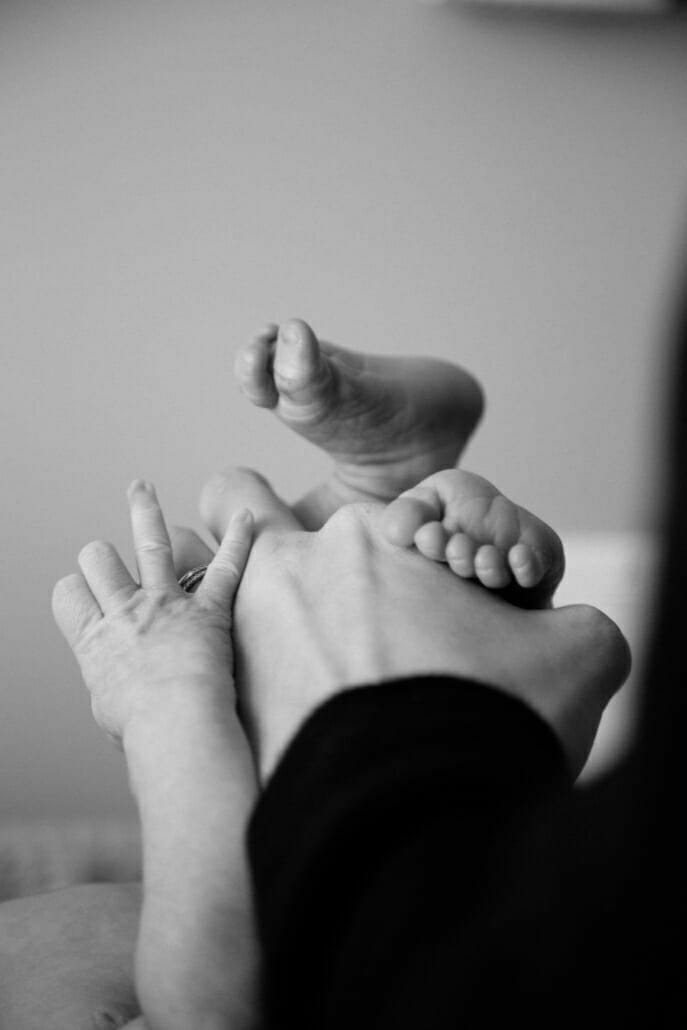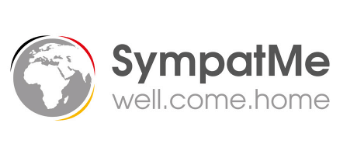Statutory holiday entitlement for employees: Does it apply to everyone?
The question often arises whether the entitlement to vacation applies to all employees. The law gives an unambiguous answer to this because § 1 BUrlG states:
- Every employee is entitled to paid recreational leave every calendar year.
It means that everyone employed in Germany is entitled to a certain number of vacation days per year, whether it is a full-time job, a part-time job, a mini-job, or a vacation job. Even an intern is entitled to vacation, provided it is not a mandatory internship.
How many holidays are employed people entitled to in Germany?
The minimum vacation days are set by law.
There is a minimum vacation law for employees in Germany that determines how much annual vacation entitlement they are entitled to as a minimum. According to § 3 BUrlG, this amounts to 24 working days per year.
However, take this statement with a pinch of salt because the law assumes a working week of six working days per week when calculating the minimum vacation. Only those who work this many days per week are entitled to 24 days of minimum vacation per year.
Employees who work fewer days also have correspondingly fewer statutory vacation days. It can be calculated using a simple formula:
(average) the number of working days per week x 4 = the statutory minimum number of vacation days.

For example, an employee who works five days per week is entitled to at least 20 days of vacation per year. It does not matter how many hours he works. The calculation is based exclusively on the number of working days.
However, only the statutory minimum vacation entitlement is determined this way. Suppose more vacation is agreed upon in the employment contract. In that case, the team member is entitled to more vacation days.
Some employment or collective agreements stipulate a higher vacation entitlement for older employees or employees with a more extended service period. However, this is not always permissible because such a provision may violate the General Equal Treatment Act. It is a matter for a court to decide in the event of a dispute.
The vacation entitlement remains valid even if the team member terminates the employment relationship. Suppose the employment relationship is terminated in the second half of the calendar year, i.e., after July 1. In that case, the team member is entitled to all remaining annual leave. Suppose the termination occurs in the first half of the year. In that case, he is entitled to one-twelfth of his annual leave for each whole month worked in that calendar year until the end of the employment relationship.
As a rule, the team member must take this leave in full before his employment ends. If this is not possible, the employer must pay vacation compensation.
How many public holidays are there in Germany 2022 & 2023?
Thanks to bridge days, public holidays are often an excellent opportunity to have several days off with few vacation days. Unfortunately, in 2021, just like in 2020, many holidays fall on the weekend. However, one public holiday is scheduled for this week in some German states, and you can find out which one it is in this article.
There are nine public holidays in Germany, which apply nationwide. However, the number of holidays is different in each state. Some are public holidays only in some parts of Germany. Bavaria, for example, tops the list with 13 days off.
On which dates are the public holidays in Germany? What holidays are there in each federal state? When is the next public holiday in 2022? In this overview, you will find all public holidays and an overview of the individual federal states.
| Public holiday | Date 2022 | Date 2023 | Public holiday in the following states: |
| New Year | 01.01.2022 | 01.01.2023 | nationwide |
| Epiphany | 06.01.2022 | 06.01.2023 | Baden-Wuerttemberg, Bavaria, Saxony-Anhalt |
| International Women’s Day | 08.03.2022 | 08.03.2023 | Berlin |
| Good Friday | 15.04.2022 | 07.04.2023 | nationwide |
| Easter Sunday | 17.04.2022 | 09.04.2023 | BrandenburgOnly the state of Brandenburg explicitly treats Easter Sunday as a public holiday. |
| Easter Monday | 18.04.2022 | 10.04.2023 | nationwide |
| Labor Day | 01.05.2022 | 01.05.2023 | nationwide |
| Ascension Day | 26.05.2022 | 18.05.2023 | nationwide |
| Whit Sunday | 05.06.2022 | 28.05.2023 | BrandenburgOnly the state of Brandenburg explicitly treats Pentecost Sunday as a public holiday (Section 2(1) of the Public Holiday Law for the State of Brandenburg). |
| Whit Monday | 06.06.2022 | 29.05.2023 | nationwide |
| Corpus Christi | 16.06.2022 | 08.06.2023 | Baden-Württemberg, Bavaria, Hesse, North Rhine-Westphalia,Rhineland-Palatinate, SaarlandIn Saxony only partially.*In Thuringia only partially.** |
| Augsburg Peace Festival | 08.08.2022 | 08.08.2023 | Only in the urban area of Augsburg(but not in the adjacent surrounding area). |
| Assumption Day | 15.08.2022 | 15.08.2023 | SaarlandIn Bavaria only partially.*** |
| World Children’s Day | 20.09.2022 | 20.09.2023 | Thuringia |
| German Unity Day | 03.10.2022 | 03.10.2023 | nationwide |
| Reformation Day | 31.10.2022 | 31.10.2023 | Brandenburg, Bremen, Hamburg, Mecklenburg-Western Pomerania, Lower Saxony, Saxony, Saxony-Anhalt, Schleswig-Holstein,Thuringia |
| All Saints’ Day | 01.11.2022 | 01.11.2023 | Baden-Württemberg, Bavaria, North Rhine-Westphalia,Rhineland-Palatinate, Saarland |
| Day of repentance and prayer | 16.11.2022 | 22.11.2023 | Saxony |
| Christmas Day | 25.12.2022 | 25.12.2023 | nationwide |
| Christmas Day 2 | 26.12.2022 | 26.12.2023 | nationwide |
| – all data without guarantee – *In Saxony only in the following catholic influenced municipalities of the Sorbian settlement area in the administrative district Bautzen: Bautzen (only in the districts Bolbritz and Salzenforst), Crostwitz, Göda (only in the district Prischwitz), Großdubrau (only in the district Sdier), Hoyerswerda (only in the district Dörgenhausen), Königswartha (not in the Wartha district), Nebelschütz, Neschwitz (only in the Neschwitz and Saritsch districts), Panschwitz-Kuckau, Puschwitz, Räckelwitz, Radibor, Ralbitz-Rosenthal and Wittichenau. The decisive factor is the place of work, not the place of residence of an employee.**In Thuringia, only in the Eichsfeld district and in the following municipalities of the Unstrut-Hainich district and the Wartburg district:Anrode (only in the districts of Bickenriede and Zella), Brunnhartshausen (only in the districts of Föhlritz and Steinberg), Buttlar, Dünwald (only in the districts of Beberstedt and Hüpstedt), Geisa, Rodeberg (only in the district of Struth), Schleid, Südeichsfeld and Zella/Rhön.***In Bavaria only in the currently approx. 1700 municipalities with a predominantly Catholic population, in the remaining approx. 350 Bavarian municipalities no public holiday. |
Continued payment of wages in the event of illness: claims & obligations

Bronchitis, broken leg, or burn-out – employees who cannot go to work for health reasons continue to be paid in Germany. A study by the Institute of German Business calculated that companies now spend almost 62 billion a year on sick leave – in 2010, it was half that amount. But who is entitled to continued payment of wages in the event of illness? What rights and obligations do employees and employers have? Find out all the details here.
What does the continued payment of wages in the event of illness mean?
Continued payment of wages in the event of illness means that employees continue to be paid a full salary by their employer in the event of illness or incapacity to work. This entitlement to continued payment of wages exists for six weeks for each new disease. In addition, it only applies if the employee is unable to work solely as a result of illness and they are not responsible for their illness or injury.
The regulations for this are set out in the Continued Payment of Wages Act (EntgFG)
Who is entitled to continued payment of wages in the event of illness?
Employees need the security of knowing that they will continue to be financially provided for in the event of illness and that their livelihood will be maintained. For this reason, continued payment of wages in the event of sickness is one of the central elements for protecting employee rights in Germany.
According to the Continuation of Remuneration Act (Entgeltfortzahlungsgesetz), every team member in a stable employment relationship subject to social insurance contributions is entitled to this in principle.
It means that full-time and part-time employees and those in mini-jobs, working students, and seasonal workers are entitled to continued payment of wages in the event of illness.
You must meet only the following criteria:
- An employer must have employed the team member for more than four weeks.
- The employee must be unable to work.
- The illness must be without fault, and the disease must exist during regular working hours.
What does “unable to work” mean?
Unable to work means the employee cannot perform job duties, or the illness would be aggravated by work.
Often it depends on the occupation whether an illness results in incapacity. A knee bruise is likely to be less bothersome in a sedentary job, but a construction worker needs intact legs. Hoarseness becomes a problem if you have to talk all day, for example, in a call center.
What does “through no fault of your own” mean?

The term “through no fault of your own” is relatively broad. Unless you have caused the illness intentionally or through gross negligence, the law always assumes that you are unable to work through no fault of your own.
According to Section 3 (1) of the Continuation of Remuneration Act, you are also entitled to continued payment of wages in the following cases:
- Removal of donor organs or tissue
- blood donation for the separation of blood stem cells
- non-illegal sterilization, and legal abortion
- measures for cure and rehabilitation
- sports accidents not caused by gross negligence
- On the other hand, self-inflicted injuries are, for example, those resulting from an accident caused by drunk driving or an instigated brawl. A migraine on Monday morning due to excessive partying over the weekend also belongs to the “self-inflicted” category.
Suppose your employer refuses to pay your wages because it considers your inability to work your fault. In that case, you can have the matter settled in court.
What does “during regular working hours” mean?
The illness must exist at a time when you would have worked under normal circumstances.
Working time includes:
- Recreational leave or so-called floating days.
- Business trips.
- Weekends.
- Holidays on which you are required to work.
Working time does not include:
- Time after work.
- Weekends off and holidays.
- Days off for part-time employees.
- Parental leave.
Employee’s obligation to report and provide evidence of work hours. The team member must notify his employer immediately of his illness or inability to work. As a rule, calling your supervisor (or the HR department) is the best solution. Report immediately as soon as you know you will not be able to come to work. An email is likewise conceivable.
You are not required to give your employer any more details about your illness or what caused it. By the third day of illness, you will need a certificate of incapacity (“sick note”) from a doctor as proof.
Employers may specify in the employment contract or internal instructions that a medical certificate is required as early as the first or second day of absence. The team member can send the certificate of incapacity for work by mail or bring it (have it) personally to the workplace.
More and more companies are offering their employees the convenience of reporting or submitting their absences and sick leave online. The supervisor in the company can approve the notification directly via software and forward it to the HR department.
Remember the deadlines!

As a team member, be sure to adhere to the specified deadlines. Suppose you do not report your incapacity for work or do not have a medical certificate from the third day. In that case, you will be absent from work without cause.
You are then not entitled to continued payment of wages in the event of illness. The employer will not pay you any salary or wages for the period of absence.
As an employer, make sure your employees understand when and how to report their inability to work. It will help you avoid misunderstandings that can lead to trouble and legal disputes.
How long must employers continue to pay sick leave?
Employers must pay sick employees their full wages for up to six weeks or 42 calendar days. The same up-to-6-week entitlement to continued pay applies to any employee’s new illness, regardless of whether the team member has worked in between.
If the employee is unable to work for more than 42 days at a time due to the same illness, the continued payment of wages by the employer ends. From this point on, the health insurance company steps in.
Suppose the team member is incapacitated for work several times with interruptions due to the same illnesses. In that case, the days of absence are added up. The entitlement ends when a total of 42 days has been reached.
When does the employer not have to continue to pay wages?
The employer does not have to continue to pay salaries if the team member caused his illness or accident himself, for example, through intent or gross negligence. Whether this applies is decided by case law in each case.
Examples could be:
- A car accident as a result of a gross violation of traffic regulations.
- Injury during a self-initiated physical altercation
- Accident as a result of a dangerous second job
- Sick pay from the health insurance fund
- In the event of severe illness or injury, an employee is often unable to work for more than six weeks. From the seventh week or the 43rd day, when the continued payment of wages by the employer ends, the statutory health insurance (GKV) steps in with sick pay.

Insured persons can receive sick pay for the same illness for up to 78 weeks within three years, but only if they cannot work without interruption.
The amount of sick pay is 70% of gross earnings but not more than 90% of net revenues.
Only those with compulsory statutory insurance are automatically entitled to sick pay. Those with voluntary statutory or private insurance may have to separate sick pay insurance.
Sick pay does not have to be applied for separately. The health insurance company contacts the team member and employer in good time and clarifies the further procedure.
Continued payment of remuneration: calculation with example
Continued payment of wages in the event of illness amounts to 100% of the salary – you will be paid exactly as much as if you were working.
Variable salary components such as commissions or bonuses must be included. Suppose it is customary to work overtime or on public holidays in your company. In that case, any bonuses paid for this must also be considered.
You are not entitled to vacation pay or Christmas bonuses during your incapacity for work.
Many employees are paid by the hour, by the piece, or based on performance. Therefore, their pay fluctuates from month to month. In this case, continued pay is based on the employee’s average income. As a rule, the employer uses the remuneration payments of the past three months for this purpose.
When does the entitlement to continued payment of wages in the event of illness end?
The team member’s entitlement to continued payment of wages by the employer ends at the end of the employment relationship.
It does not matter whether the employment contract was terminated or was limited in time from the outset. The entitlement also ends if the employment relationship ends during the team member’s incapacity for work.
In some cases, the employer must continue to pay wages beyond the end of the employment relationship:
- If the employer has terminated the team member because of the employee’s incapacity for work.
- If the employment relationship is terminated with a termination agreement at the employer’s instigation during the incapacity for work.
- If the team member has resigned for reasons for which the employer is responsible.
- With these regulations, the legislator wants to prevent employers from giving notice of termination due to illness (or urging termination) to escape their financial obligations.
Maternity protection
What is maternity protection?

Maternity protection is special protection for employees who are pregnant or breastfeeding a child. Both mothers and children are protected, both before birth and after. Maternity protection includes
- protection of health in the workplace
- special protection against dismissal,
- a ban on employment in the weeks before and after the birth, and
- the safeguarding of income during the employment ban.
Which women are protected?
Maternity protection exists for all pregnant and breastfeeding workers. It does not depend on the type of employment. So you get maternity protection even if,
- if you work part-time,
- if you are undergoing vocational training and your training is based on an employment contract,
- if you are marginally employed,
- if you are a domestic worker,
- if you are doing an internship that is necessary for your training,
- if you are a volunteer within the meaning of the Youth Volunteer Service Act or the Federal Volunteer Service Act,
- if you are a woman with a disability, employed in a workshop for disabled persons.
- Suppose you are employed on a fixed-term basis, for example, for testing purposes or to replace other employed persons. In that case, you’re covered by the Maternity Protection Act during pregnancy and after childbirth for as long as the fixed-term employment relationship continues. A fixed-term employment relationship also ends.
during pregnancy
during the protection period after childbirth and
during parental leave with the expiry of the agreed period or the
achievement of the purpose.
Under restrictions, the Maternity Protection Act also applies:
- if you are working as a development worker within the meaning of the Development Workers Act,
- if you are a pupil or student and your school or university dictates the place, time, and schedule of your educational events,
- if you are employed remotely or are treated as equivalent to a woman in remote employment (see § 1 paragraph 1 and 2 of the Home Work Act), insofar as you work on the piece, or
- if you are to be regarded as a person similar to a team member due to your economic non-independence.
- You will find relevant information under Maternity Protection for Civil Servants if you are a civil servant.
It also does not matter whether you are married or your nationality. The only thing that matters is that you work in Germany, or German law applies to your employment relationship. It can also be the case, for example, if you are employed by a German company but work abroad.

The Maternity Protection Act does not apply,
- if you are a housewife,
- if you are exclusively self-employed,
- if you are a member of the governing body of a company or
- are a managing director of a legal entity or company, and you do not predominantly also work as a team member.
- Maternity protection is only for pregnant or nursing women. Therefore, there is no maternity protection for adoptive mothers, for example.
Maternity protection is regulated by the Maternity Protection Act (Mutterschutzgesetz, MuSchG): the law for the protection of mothers at work, in training, and during studies.
When do I have to inform my employer about my pregnancy?
You decide whether and when you inform your employer about your pregnancy. However, please keep in mind that there may be risks to your unborn child, especially during the first three months of your pregnancy. The sooner you inform your employer of your pregnancy, the better he can ensure adequate maternity protection.
My employer wants a medical certificate that I am pregnant
Suppose your employer expressly requires a medical certificate because verbal information is insufficient for him. In that case, he must pay for this certificate himself. Your employer may not disclose the information about your pregnancy to third parties without authorization.
Do I have to say that I am pregnant in a job interview?
No. If you are asked about it in a job interview, you may lie. You also do not have to write anything about your pregnancy in your application documents.
How long is maternity protection before and after the birth?

The maternity protection period is several weeks before and after the birth. You are not allowed to work during this period. The maternity protection period
- begins six weeks before the expected date of birth and
- usually ends eight weeks after the birth.
- If your child is born before the expected date, the maternity protection period will still last 14 weeks. It does not end eight weeks after the birth but a few days later – as many days as your child was born before the due date.
The situation is different if your child was born so early that it is medically considered a premature birth (for example, if your child weighs less than 2,500 grams). In the case of premature birth, maternity protection lasts for 12 weeks after the delivery. It increases the total maternity protection period from 14 weeks to 18 weeks.
You will receive your full eight weeks of maternity leave even if your child is born after the due date. The maternity protection period then applies to you a few days longer, depending on the actual date of birth.
The maternity protection period also ends 12 weeks after the birth,
- if you give birth to twins, triplets, or other multiples, or
- in the case of births of children with disabilities, you apply to your health insurance fund for an extension of the maternity protection period.
What is the difference between maternity protection and maternity protection period?
Maternity protection is special protection for employees who are pregnant or breastfeeding a child. It includes protection of health at the workplace combined with an entitlement to working conditions suitable for mothers (health protection with entitlement to participation), special protection against dismissal (protection against dismissal), the ban on employment, and the safeguarding of income during the prohibition of work (income protection). This protection applies before and after birth. With some unique features, this protection also applies to schoolgirls and students.
The maternity protection period is when you are not allowed to work before and after giving birth. Colloquially, this period is what is meant when people say a woman is on “maternity leave.” It usually begins six weeks before the calculated date of birth and ends eight weeks after the birth. Thus, the maternity protection period usually covers 14 weeks. There is a unique feature for the protection period before childbirth: During this time, you may continue to be employed – if you expressly wish to do so.
Maternity protection consists of many individual measures to protect the mother and her child. In contrast, the maternity protection period specifies the exact period a mother may not work before and after giving birth.
What is protection against termination?

It means that you’re protected from being terminated of your employment by your employer for a specific time. You may not be removed from employment from the beginning of your pregnancy until the end of your protection period after childbirth. The same protection against dismissal applies until the expiry of four months in the event of a miscarriage after the twelfth week of pregnancy (periods of protection against dismissal).
You are not protected from dismissal until your employer knows that you are pregnant, have had a baby, or have had a miscarriage.
Suppose your employer terminates your employment before you have informed them. In that case, you still have up to two weeks from the termination date to inform your employer. Suppose you miss this deadline through no fault of your own. In that case, you should then make up the information immediately to be protected against dismissal. The protection against dismissal also applies if you were not yet aware of the pregnancy or were not yet sure. However, you must already have been pregnant when you received the notice of termination.
How long must my employer give me time off for breastfeeding?
Until your child’s first birthday, your employer must give you time off to breastfeed if you want to – for at least twice 30 minutes or once one full hour per day. It is essential that you request the time off verbally or in writing. You do not have to work during the time off for breastfeeding, nor may your pay be reduced. This time may also not be counted toward your rest breaks.
If you work more than 8 hours without having a rest break of at least 2 hours, you are entitled to at least 45 minutes for breastfeeding twice a day. Suppose you do not have the opportunity to breastfeed your child near your workplace. In that case, you can request a breastfeeding period of at least 90 minutes.
You can decide where, when, and how long you breastfeed for yourself. If you cannot agree on this with your employer, you can contact your supervisory authority. They can help you specify the times when you are free to breastfeed and enforce them against your employer.
Even if you work part-time, you are entitled to time off for breastfeeding.
Imagesource: Unsplash
You need to load content from reCAPTCHA to submit the form. Please note that doing so will share data with third-party providers.
More Information


